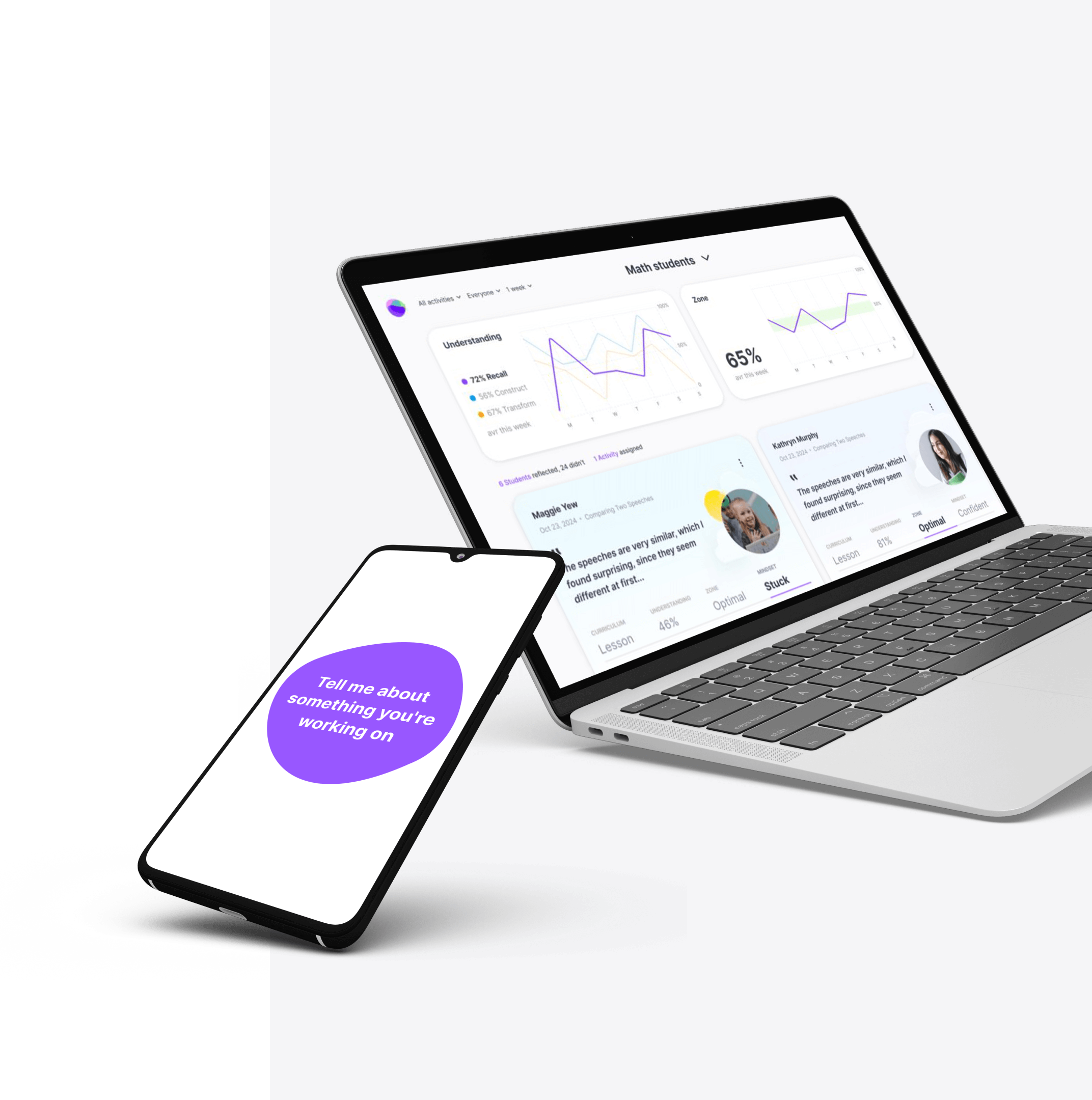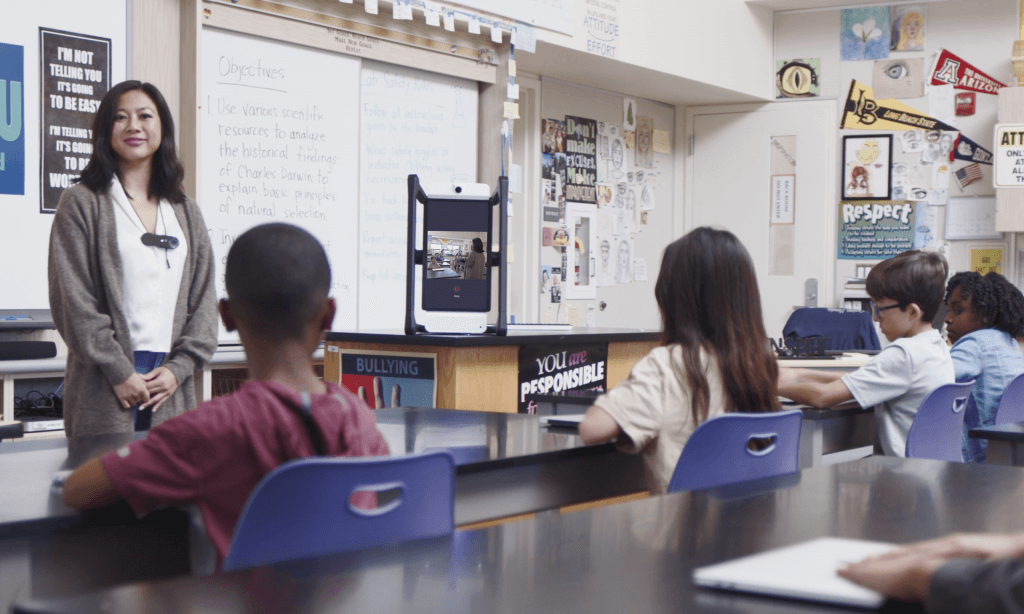
Data-driven decision-making has become the bedrock of modern education. Schools eagerly tout their dedication to data, promising personalized learning and better outcomes.
Yet, despite these claims, many teachers and students find themselves overwhelmed, stressed, and disconnected from the very systems that are supposed to support them.
So, it’s worth asking: Is your data truly serving students, or is it just another tool for administrators?
The reality of compliance-driven data
Research has demonstrated that data-driven instruction positively impacts both teachers’ instructional strategies and students’ academic performance. By using data to tailor teaching to individual needs, teachers can:
- Adjust their methods to better support student learning
- Address learning gaps
- Enhance overall engagement
This approach leads to more informed decision-making in the classroom, allowing for targeted interventions that can significantly improve student outcomes.
However, in many schools, data collection has become more about compliance than real impact. It’s designed to meet bureaucratic demands, not to boost student learning.
Instead of driving progress, data gathering often turns into a box-ticking exercise—serving administrative needs while missing what truly matters in the classroom.
To truly make a difference in student outcomes, schools need to refocus on student-centered data practices that inform teaching and learning in real-time.
The heavy burden of data collection

The volume of data collection imposed on teachers and students is staggering.
Pre-tests, post-tests, diagnostic assessments—it’s a never-ending cycle that frequently disrupts the flow of learning.
Teachers spend hours administering tests and collecting data, only to find that by the time the assessment has been processed, it’s too late to make a real impact.
Most of this data is collected to meet state or federal mandates, providing little in the way of timely insights that could help students in the moment.
And it rarely drives meaningful change at the school or district level.
The impact on students: testing overload
The obsession with standardized testing has created a culture of over-testing. Some students now face up to 20 assessments required by their state, school, or district in a single year, pulling focus away from meaningful learning and fostering a “test-taking” mindset.
Instead of mastering the material, students are fixated on passing exams.
To make matters worse, many standardized tests fail to measure students’ true abilities.
Knowing these tests don’t impact their immediate future, students often disengage, leading to unreliable data. This relentless focus on testing does more to undermine their education than improve it.
Teachers caught in the middle
Teachers are increasingly trapped between two competing priorities: fostering student growth and meeting administrative demands for data collection.
Instead of focusing on direct instruction, they’re often bogged down with testing and gathering data that offers little real-time value in the classroom.
The problem is compounded by the lag in receiving testing results. State-level assessments, often heralded as key measures of student progress, arrive long after the data is relevant.
By the time teachers finally get standardized test scores, the opportunity to address current learning gaps has passed.
This disconnect between the data being collected and its actual instructional use reveals a significant flaw in the system. Instead of empowering teachers to support students in real-time, these delayed results do little to help them meet the immediate needs of their learners.
Data for data’s sake: a missed opportunity

Schools often gather data without a clear plan for how it will enhance learning. This fixation on metrics can distort our view of student success, placing more value on test scores than on deeper indicators like engagement, mindset, and problem-solving.
The outcome? Piles of data that meet administrative needs but offer little actionable insight for teachers.
Worse still, some education experts are saying it’s unclear if reviewing assessment scores even improves student outcomes at all.
If the data isn’t driving better instruction or fostering student growth, it’s missing the point altogether.
Shifting to student-centered data practices
To truly benefit students, schools need to shift to student-centered data practices that prioritize meaningful learning outcomes. This means tracking metrics like daily comprehension, student mindset, and the challenges students face in real-time.
With formative assessments and immediate data feedback, teachers can adjust their strategies on the fly, addressing learning gaps before they become entrenched. This approach leads to more effective teaching and, ultimately, better outcomes for students.
MirrorTalk
Collect meaningful data with student-focused assessments.
In just 2 minutes, teachers can set up spoken reflections with this AI-powered tool. MirrorTalk automatically scores and analyzes these reflections, giving districts deep insights into student understanding, mindset, and challenges.
Learn about our pilot program and try MirrorTalk in your school.

Proposing a balanced approach to data
A balanced approach to data demands collaboration between administrators, teachers, and students.
Data collection should be a tool for improving learning, not just for checking compliance boxes. This means scaling back high-stakes testing and focusing on assessments that truly inform instruction.
By reducing over-testing and prioritizing formative assessments, schools can create an environment where data genuinely serves students and enriches their educational experience.

Aligning data with student success
Current data systems in education often prioritize administrative needs over student success. This disconnect between what is measured and what truly matters creates a major obstacle to improving student outcomes.
To drive real progress, schools need to shift from compliance-driven data to student-centered practices. By focusing on actionable, timely metrics that reflect genuine student growth, schools can move beyond ticking boxes and foster real success in the classroom.
Measure the right thing at the right time with MirrorTalk
Ready to track data that genuinely improves student outcomes? MirrorTalk is a daily reflection tool that saves teachers time while revealing the crucial insights they and their administrators need to stay ahead.
With MirrorTalk, you get an instant, up-to-date snapshot of how every student and classroom in the district is grasping objectives, facing the right level of challenge, and maintaining an optimal mindset for learning.
No more waiting for test scores that arrive too late to make a difference—MirrorTalk gives you the data you need when you need it, empowering you to make timely, effective instructional decisions.
Learn about our pilot program and bring MirrorTalk to your school.